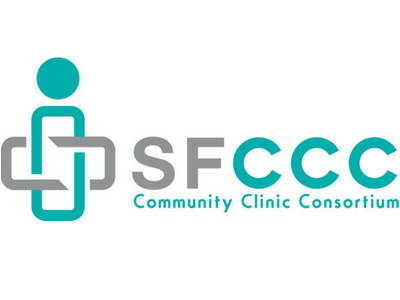NHC SF Member Blog: Endless Experiences in WPIC's Programs
Hello Everyone! My name is Vishnu Palaniappan (he/him) and I’m serving as a Street Outreach Services (SOS) and Shelter Health Care Coordinator at the San Francisco Department of Public Health’s Whole Person Integrated Care (WPIC) division. The main clinic I am generally at is the Maria X Martinez (MXM) Health Resource Center, a drop-in, low-barrier urgent care that serves unhoused populations predominantly. I also spend a part of my week outreaching and doing Street Medicine in various neighborhoods of San Francisco including the Tenderloin, SOMA, Bayview, and North Beach.
Five months into my service position at the SF Department of Public Health, I find myself grateful for the invaluable opportunity to serve historically underserved communities, specifically addressing health disparities among marginalized communities in San Francisco. Despite my position description primarily mentioning Street Outreach and Shelter Health, I am actively engaged in numerous programs within WPIC. This involvement has given me a breadth of knowledge and countless learning experiences that I truly appreciate. My schedule is segmented into Shelter Health, Street Medicine, Palliative Care, and Contingency Management. Let me provide you with a sneak peek into each of these aspects of my week.
My week starts with Shelter Health, a medical program spanning 20 different shelters across the city. Each clinic houses a medical provider, either a nurse and/or physician, along with a health worker. Every shelter has its unique population focus such as substance use and mental health recovery. In this role, I serve as a care coordinator and assist in taking vitals and administering COVID tests. I also help connect patients to primary care, health insurance, case managers, housing, and food services. Collaborating with the clinic and site staff has been a great experience, which has helped me see some of the healthcare barriers and challenges faced by clients in the shelters. I thoroughly enjoy being a listening ear for patients and seeing their progress in improving their health makes it that much more rewarding.
Next, I spend time in Street Medicine, broken down into outreach and Palliative Care. For outreach, I work closely with a medical provider to connect with unhoused populations in a specific neighborhood of the city. I found myself going to the Lower Bayview or North Beach mostly, that being said, the area varies based on the need of the week. We educate and provide patients with adequate resources such as food and first aid equipment to improve their health and well-being. With my visits, I have had the opportunity to build upon my Spanish skills to better connect with my patients. Similar to the shelters, I also help clients get connected to primary care, mental health and substance use recovery services, and health insurance. Furthermore, we play an active role in the community, working to prevent overdoses by supplying essential resources. Through outreach and developing meaningful relationships with locals, I have gained a clear understanding of the challenges unhoused folks deal with regularly.
On the other side of Street Medicine is Palliative Care, which is a relatively new program that is focused on providing individualized care to our clients with terminal illnesses by helping align with the patients’ end-of-life goals and supporting them as they process their serious diagnoses. The team consists of a physician, social worker, nurse, and health worker, who work in their respective capacities to help improve our client’s lives. As a result, my role is unique to the team as I primarily provide comfort and support to patients in any way possible, whether that is doing weekly wellness checks, coordinating their insurance and housing, or accompanying them to their appointments. My visits are generally in-depth, helping me develop a fruitful relationship with my patients, where I get to understand stories and memories in their lives. Through these visits, I have learned to provide unconditional support to my patients regardless of the times.
Lastly, I am a program navigator for the Incentive Support Program for Improvement and Recovery, where I assist individuals seeking change with their stimulant use. This program was created over the past few months and is one of the first Contingency Management programs in the country. Our group meets twice a week at the MXM clinic, where patients receive an incentive for attendance and socialize with other members in addition to having a visit with the provider. As a navigator, I oversee referral/enrollment lists and organize attendance and patient flow while encouraging participants to wind down stimulant use. This program showed me how important community can be for a patient’s well-being especially in difficult times such as sobering up. Moreover, being able to connect with participants and see their improvements motivates me to become a provider someday to make a similar impact.
Reflecting on my time as an Americorps member so far has been enriching, allowing me to learn and gain experience in a plethora of Public Health programs dedicated to patient-centered care for unhoused populations. This opportunity has also helped me establish deeper connections with the local community. I am excited to continue learning and carrying these valuable sentiments while better serving my future patients. I hope to promote inclusivity and advocate for decreasing the healthcare barriers of underserved populations as an aspiring healthcare provider.
About the Author
Vishnu Palaniappan (he/him) is one of the 2023-2024 NHC San Francisco AmeriCorps Members. He is currently serving as the SOS and Shelter Health Care Coordinator with the San Francisco Department of Public Health - Whole Person Integrated Care Team.


